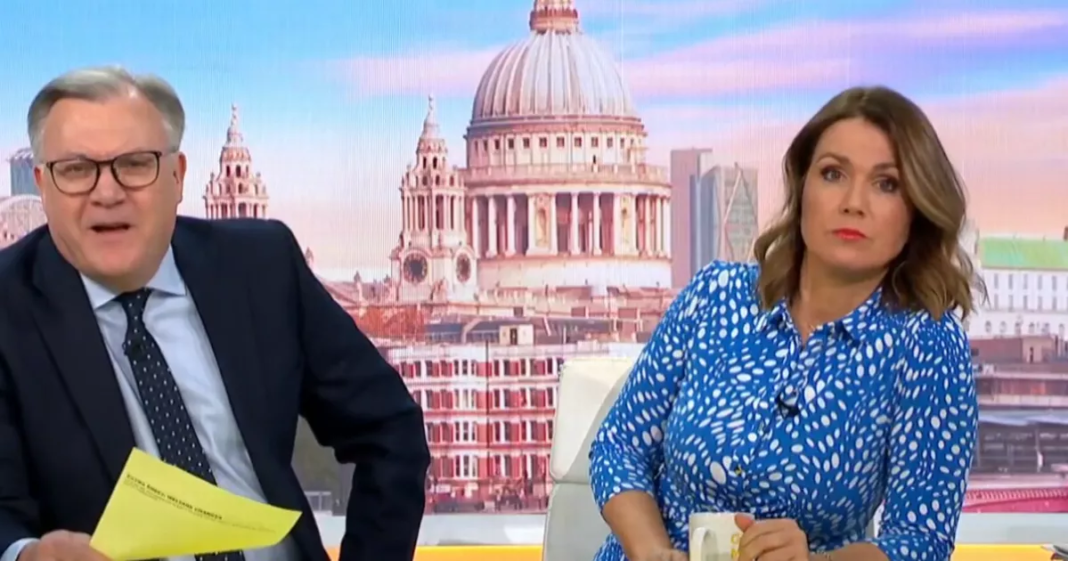Amid swirling rumours that Personal Independence Payments (PIP) could be frozen, an update has emerged suggesting those with severe disabilities might lose out financially. Labour is currently reviewing benefit payments after witnessing a surge in costs and claimants over recent years.
With the UK grappling with economic challenges, including increased defence spending, Ed Balls appeared on Good Morning Britain today, referencing ITV‘s report on impending cuts affecting the disabled. ITV has revealed plans for the government to announce over £6bn in welfare savings, which include stricter criteria for key disability benefits and some payments being frozen in 2026.
Balls commented: “We’re talking about ways to help people into work. ITV reporting at the weekend, part of this is going to be freezing those, those personal independence payments. Under these plans, even those with extreme disabilities in the unfit to work category are likely to lose money.”
He questioned Accessibility Consultant Shani Dhanda on her thoughts regarding the potential cuts. Dhanda responded: “It’s so cruel, it’s so cruel because on average disabled people face unavoidable extra costs of £1,010 a month. That takes into consideration you receiving PIP. So even if you do receive that benefit, you’ve still got to find an extra £1,000 pounds a month. So if they’re gonna cut it even more, where are people gonna get this money from? Where are they getting it from now?”.
According to reports the radical package of reforms will see:
A sweeping set of reforms could bring dramatic changes, prompting Susanna Reid to question: “Shani Dhanda, £100 billion by 2030. That is a huge amount of money. Can you see why the government would want to cut it back?” Responding to this on the show, Ms Dhanda reflected: “Absolutely, and I don’t disagree that we do need to reform the system. I agree, but not like this, not at the expense of disabled people. Nearly half of everyone that already lives in poverty is a disabled person or they’re a carer of a disabled person.”
Shedding light on the grim statistics of destitution and disability, she added, “And a high percentage of people that live in destitution are also disabled. If we’re going to cut support to the people that need it most, it’s only going to push even more people into extreme deep poverty with the backdrop of the assisted dying bill.”
Further contribution came from Ed Balls who raised a crucial point about employment, asking: “The government says that what’s happened over time is that the system has stopped helping people get into work and then actually the financial incentive means that often people are worse off if they take a job and therefore you have people in their 20s who are going to be stuck on sickness benefit for 20 – 30 – 40 years.”
Ms Dhanda responded: “I think we absolutely need to encourage employers to do much more, but when we actually look in terms of the rates that people get, it’s very difficult to even be eligible for something like PIP. The form alone is 40 pages that you need to fill in, you need to back it up with so much medical evidence, and it’s less than £200 a week that people get. How many of us can really live on that much amount of money?”.
Susanna said: “Mark Littlewood, you’re director of popular conservatism, you used to be director of the Institute of Economic Affairs and and were an advisor to Liz Truss when she was Prime Minister. Why do you think these benefits have ballooned so much, and do you accept that they might have ballooned for very legitimate reasons?”.
Mr Littlewood replied: “Well, it’s possible. I mean, it seems to me most likely it’s some sort of post-COVID psychological reason. And the government’s right to tackle this. We have a worklessness crisis in Britain, worse than any other G7 country in terms of getting people back into work after COVID. We’ve just seen those numbers that we might see this bill increase to 100 billion by 2030. Well, nobody thinks that illness and disability is going to increase. That sort of level.
“So why would the bill increase? There must somewhere be an incentive problem in the system. So the government’s right to tackle it. I would agree with Shani, it’s got to be done incredibly sensitively, but we do need to get people back into work. We, we’ve got 1 in 8 young people who are not in education, not in training, not in work. That’s a huge number.”
At Reach and across our entities we and our partners use information collected through cookies and other identifiers from your device to improve experience on our site, analyse how it is used and to show personalised advertising. You can opt out of the saleor sharing of your data, at any time clicking the "Do Not Sell or Share my Data" button at the bottom of the webpage. Please note that your preferences are browser specific. Use of our website and any of our services represents your acceptance of the use of cookies and consent to the practices described in our Privacy Notice and Privacy Notice.

